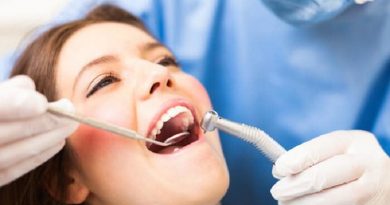Signs You Should See an Emergency Dentist Right Away
Key Takeaways
- Recognizing signs of dental emergencies can prevent further health complications.
- Prompt action is crucial in instances of dental trauma or severe pain.
- Visiting a dentist appropriately can save your teeth and maintain overall oral health.
Introduction
Oral health is far more crucial to our overall well-being than many realize, and dental emergencies can pose serious threats if not addressed quickly. These emergencies can manifest in various forms, each varying in severity and requiring unique interventions. While some minor issues can be managed at home with primary care, others necessitate an immediate trip to an emergency dentist. Knowing when to seek immediate care can significantly impact both short-term relief and long-term dental health. This guide highlights the critical signs indicating that a visit to a dental clinic is imperative, ensuring that your teeth remain healthy and your smile stays bright.
Sudden, Severe Toothache
Toothaches are common, but when the pain becomes sudden and severe, it’s a red flag that something more serious might be at play. Intense tooth pain can signify issues like a deep cavity, dental abscess, or even fractured roots, each requiring urgent attention. Such conditions can rapidly deteriorate without proper care, leading to potential tooth loss or infections that spread beyond the oral cavity. An emergency dentist can provide immediate relief and prevent further damage, preserving both the tooth and surrounding tissues. Early intervention is crucial in diagnosing the root cause of the pain and administering appropriate treatments, such as fillings, root canals, or other restorative procedures.
Persistent Bleeding Gums
While bleeding gums can occur occasionally, especially after flossing or brushing, persistent or significant bleeding is a cause for concern. It may indicate underlying issues such as advanced gum disease (periodontitis) or could be the result of trauma or injury to the gums. Gum disease is a severe condition that can lead to tooth loss and other health complications if left untreated. Prompt evaluation by a dentist is essential to assess the health of your gums and prevent progression. Treatment might include professional cleaning, antibiotics, or other targeted therapies to restore gum health and prevent future issues. It’s crucial to understand that persistent gum bleeding is abnormal and should be treated seriously to ensure comprehensive oral health.
A Tooth Has Been Knocked Out or Loosened
Accidents and injuries can sometimes lead to a tooth being knocked out completely or becoming significantly loosened. In such cases, time is of the essence, as rapid action is pivotal in potentially saving the affected tooth. If a tooth is knocked out, gently rinse it with water, avoiding scrubbing, and attempt to reinsert it into the socket if possible. If that fails, place the tooth in a container with milk to keep it moist and preserve the root. Seek immediate dental assistance, as quick, professional intervention can often successfully reattach the tooth. A dentist can evaluate the extent of the trauma and recommend the most viable course of action. Delaying treatment can result in the inability to save the tooth, leading to more extensive and expensive dental procedures in the future.
Unexplained Swelling or Abscess
Facial swelling, especially when accompanied by pain or the discovery of an abscess, signals a significant dental issue needing urgent attention. An abscess, a pocket of pus within the tooth or gums, indicates an infection that can cause severe pain and other systemic health issues if it spreads. This condition can affect not only the teeth but also the surrounding supportive bones and tissues. It’s crucial to visit a dental professional immediately to confirm the diagnosis and plan appropriate treatment, including draining the abscess, antibiotics, or even a root canal. Ignoring these symptoms could result in more severe health complications, including spreading the infection to other body areas. Proper and swift treatment ensures that oral health is restored and potential systemic risks are mitigated.
Injury to the Mouth
Injuries to the mouth, often resulting from sports or accidents, can cause considerable damage to teeth and gums. These injuries may lead to broken, chipped, or fractured teeth and damage to the soft tissues inside the mouth. Sustained trauma requires immediate assessment to prevent further complications, such as infections or irreversible damage to the teeth. In extreme cases, a dental professional can evaluate the injury’s severity and recommend appropriate interventions, such as bonding, veneers, crowns, or dental surgery. Prompt treatment alleviates discomfort and helps restore the mouth’s functionality and aesthetic appearance.
Lost Filling or Crown
Losing a filling or crown can leave a tooth vulnerable to decay, sensitivity, and further structural damage. While it may not cause immediate pain, the exposed area can allow bacteria to infiltrate, resulting in cavities or infections over time. Swiftly addressing a lost filling or crown is essential to protect the tooth from additional harm. A dentist can temporarily safeguard the tooth until a more permanent fix is arranged, such as repairing or replacing the restoration. This ensures that the tooth maintains its function and prevents future complications that could require more invasive and costly treatments.
Conclusion
Dental emergencies, though often unexpected, require prompt recognition and swift action to prevent long-term consequences. Understanding the signs that necessitate an immediate visit to a dental professional is essential for maintaining oral health and overall well-being. Whether it’s a severe toothache, bleeding gums, a knocked-out tooth, swelling, mouth injury, or a lost filling or crown, knowing when to seek emergency care can be the key to preserving your natural teeth and ensuring optimal oral health. Regular dental check-ups and good oral hygiene habits prevent emergencies and provide a radiant smile.



